Strengthening Domestic Defence Manufacturing: IAF-Industry Conference Held in New Delhi
It aimed to bridge the gap between the defence sector and the industrial community, ensuring a more integrated and synergistic approach to meet the strategic needs of the IAF and other armed forces.
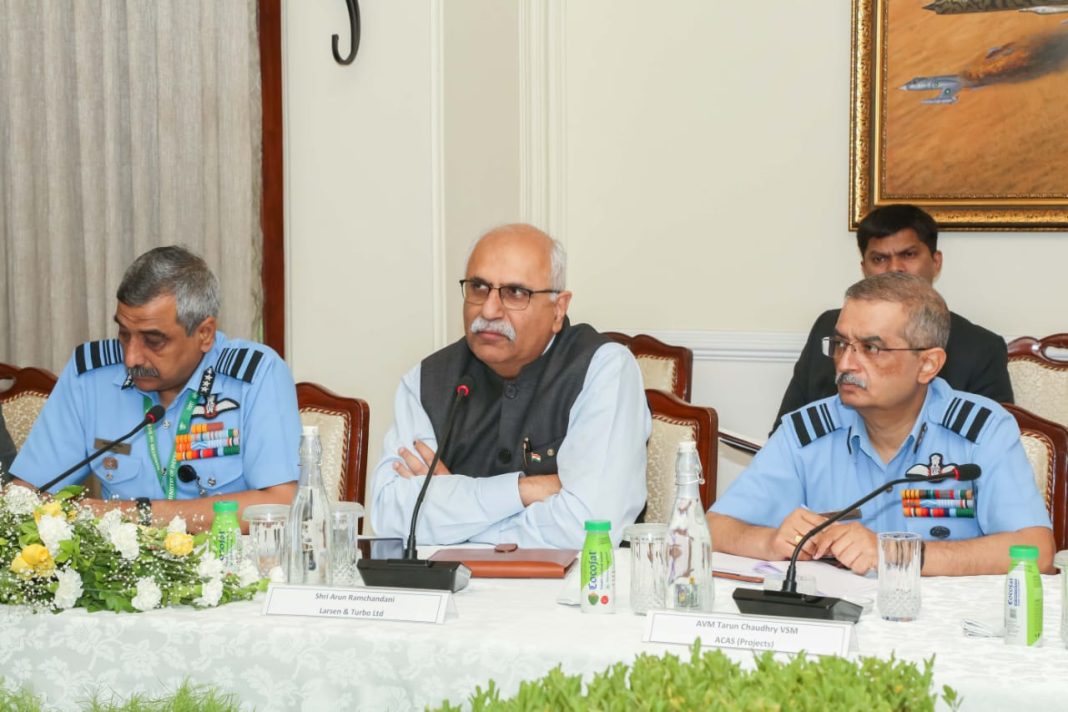
In a significant move towards bolstering domestic defence manufacturing and fostering robust collaboration between the Indian Air Force (IAF) and industry, a high-profile conference was conducted on May 30, 2024, in New Delhi.
The event, chaired by Deputy Chief of the Air Staff (DCAS) Air Marshal Ashutosh Dixit, brought together key stakeholders from various sectors, including representatives from the Department of Defence Production (DDP), the Federation of Indian Chambers of Commerce and Industry (FICCI), the Society of Indian Defence Manufacturers (SIDM), and the PhD Chamber of Commerce and Industry.
The conference was a pivotal step in the nation’s ongoing journey towards Atmanirbharta (self-reliance) in defence manufacturing.
It aimed to bridge the gap between the defence sector and the industrial community, ensuring a more integrated and synergistic approach to meet the strategic needs of the IAF and other armed forces.
The event saw active participation from industry leaders and innovators who shared their insights and experiences.
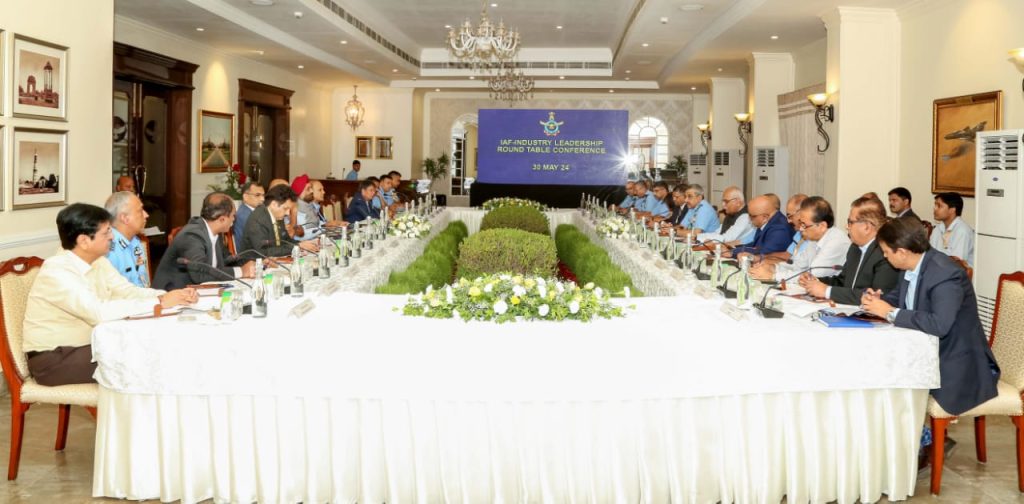
The discussions focused on several key areas, including the development of cutting-edge technologies, the integration of artificial intelligence and machine learning in defence systems, and the enhancement of the supply chain for critical components.
Representatives from the DDP highlighted the government’s policies and initiatives designed to promote domestic defence manufacturing.
They underscored the importance of public-private partnerships and the role of small and medium-sized enterprises (SMEs) in driving innovation and manufacturing capabilities.
One of the primary goals of the conference was to identify and address the challenges faced by the defence manufacturing sector.
Through a series of panel discussions and interactive sessions, participants explored various strategies to enhance the collaboration between the IAF and the industry. The focus was on creating a conducive environment for innovation, facilitating knowledge transfer, and ensuring the timely delivery of high-quality defence products.
The conference also provided a platform for the signing of several Memorandums of Understanding (MoUs) between the IAF and various industry partners.
These MoUs are expected to pave the way for future collaborations, enabling the co-development of advanced technologies and systems tailored to the specific needs of the IAF.
During the event, several success stories of domestic defence manufacturing were showcased. Companies that have made significant contributions to the sector presented their achievements and discussed the challenges they overcame.
These stories served as inspiration and provided valuable lessons for other participants looking to venture into or expand their presence in the defence manufacturing space.
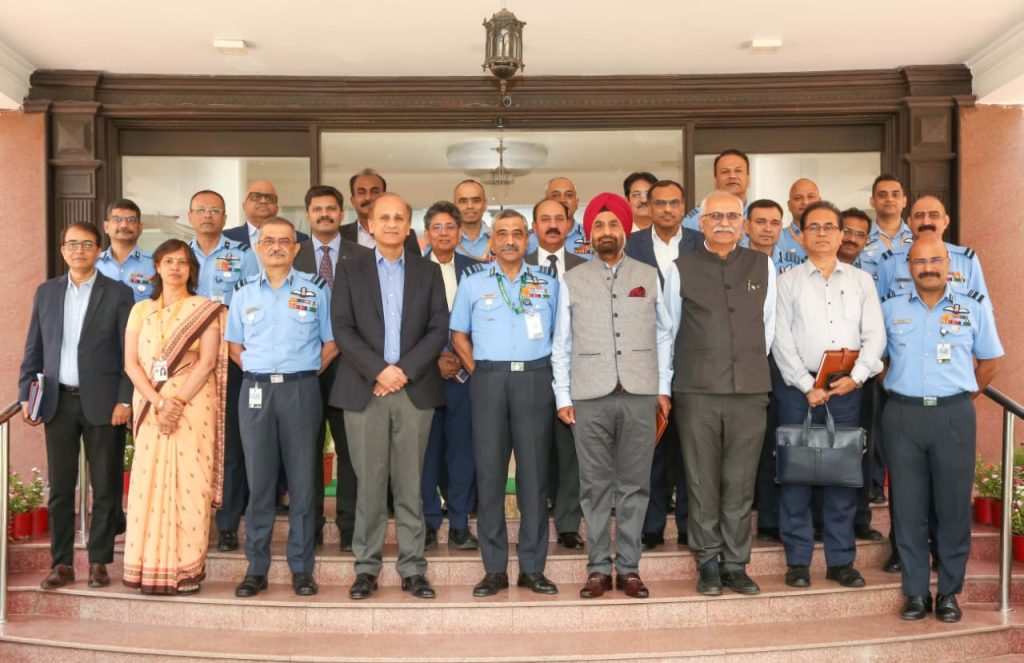
Air Marshal Dixit reiterated the IAF’s commitment to fostering a strong partnership with the industry. He emphasized the need for continuous engagement and collaboration to keep pace with the rapidly evolving technological landscape.
The conference concluded with a renewed sense of purpose and commitment from all participants. The discussions and agreements made during the event are expected to lead to tangible outcomes in the near future. By fostering a closer relationship between the IAF and the industry, the conference has set the stage for significant advancements in domestic defence manufacturing.
The successful conduct of this conference marks a critical step towards achieving Atmanirbharta in defence manufacturing. By leveraging the collective strengths of the IAF, the industrial community, and the government, India is well on its way to becoming a global leader in defence technology and manufacturing.
The collaborative efforts initiated at this event will undoubtedly play a crucial role in enhancing the nation’s defence capabilities and ensuring its long-term strategic autonomy.



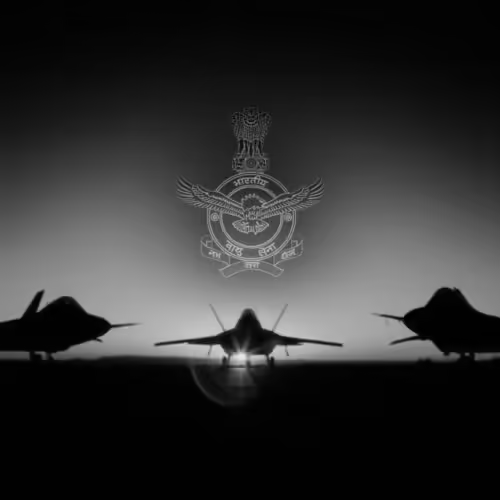


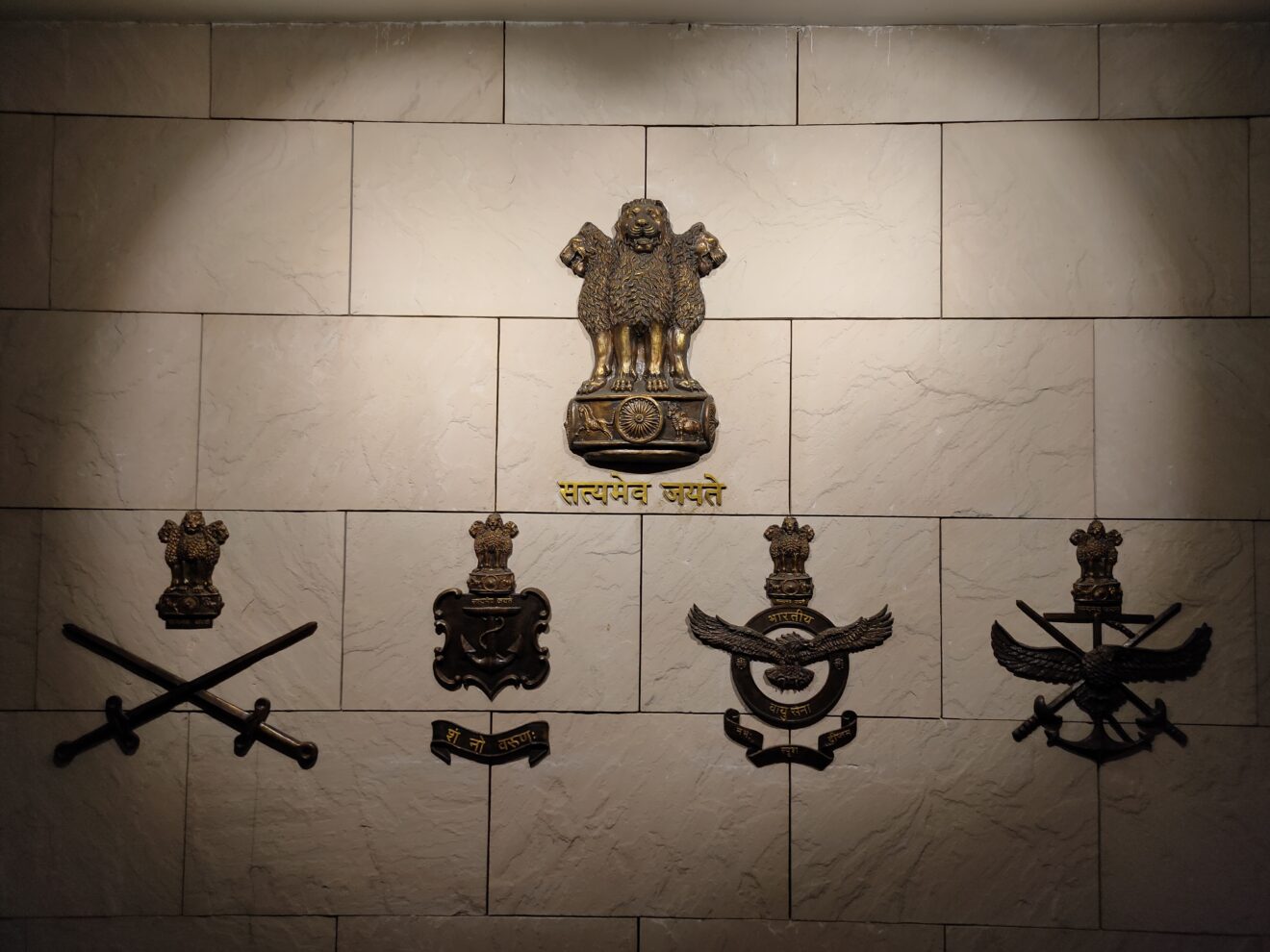



Add Comment